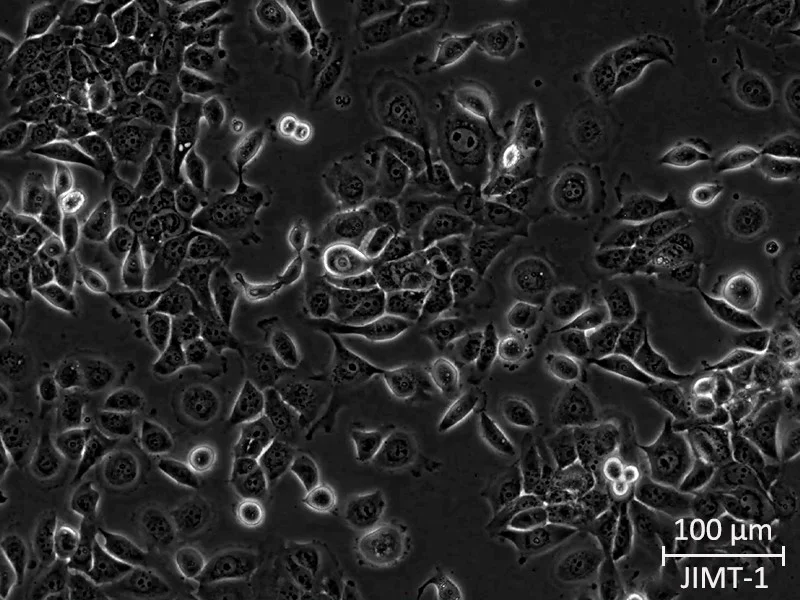-
Happy Holidays from AcceGen! Orders placed during Dec 22–Jan 2 will be processed and shipped after operations resume. Please plan ahead.
Featured Products
- In-Stock Tumor Cell Lines
- Human Orbital Fibroblasts
- Human Microglia
- Human Pulmonary Alveolar Epithelial Cells
- Human Colonic Fibroblasts
- Human Type II Alveolar Epithelial Cells
- Human Valvular Interstitial Cells
- Human Thyroid Epithelial Cells
- C57BL/6 Mouse Dermal Fibroblasts
- Human Alveolar Macrophages
- Human Dermal Fibroblasts, Adult
- Human Lung Fibroblasts, Adult
- Human Retinal Muller Cells
- Human Articular Chondrocytes
- Human Retinal Pigment Epithelial Cells
- Human Pancreatic Islets of Langerhans Cells
- Human Kidney Podocyte Cells
- Human Renal Proximal Tubule Cells
Primary Cells
Explore Products





 JIMT-1 breast cancer cell line offers crucial roles in cancer research and drug development. It can generate xenograft tumors in mice models, allowing researchers to evaluate drug efficacy and inhibitor effectiveness both in vitro and in vivo. For instance, JIMT-1 cells have been extensively used to test HER-2-targeting drugs and small molecule tyrosine kinase inhibitors designed to block the HER-2 signaling pathway. Additionally, JIMT-1 cells can be utilized for genomic screening to identify key genes involved in cell proliferation and tumor growth. These applications make JIMT-1 a valuable tool for understanding breast cancer biology, investigating mechanisms of therapeutic resistance, and developing targeted therapies.
JIMT-1 breast cancer cell line offers crucial roles in cancer research and drug development. It can generate xenograft tumors in mice models, allowing researchers to evaluate drug efficacy and inhibitor effectiveness both in vitro and in vivo. For instance, JIMT-1 cells have been extensively used to test HER-2-targeting drugs and small molecule tyrosine kinase inhibitors designed to block the HER-2 signaling pathway. Additionally, JIMT-1 cells can be utilized for genomic screening to identify key genes involved in cell proliferation and tumor growth. These applications make JIMT-1 a valuable tool for understanding breast cancer biology, investigating mechanisms of therapeutic resistance, and developing targeted therapies.